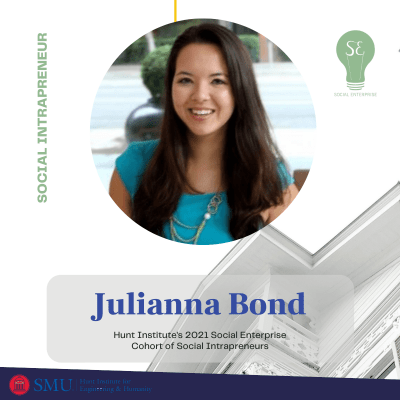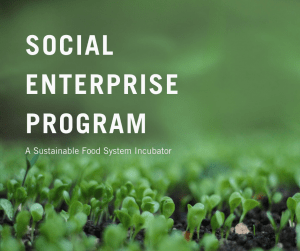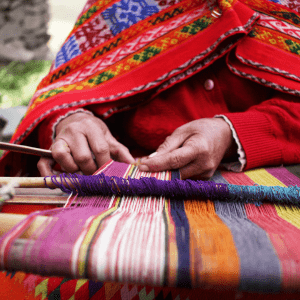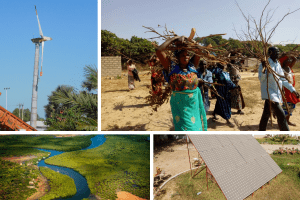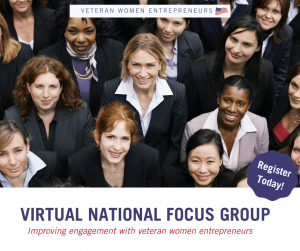Julianna Bond joins the Hunt Institute’s Social Enterprise 2021 Cohort as an Intrapreneur. Her focus is on enabling the enablers: how can consulting firms use their unique position—straddling organizations, industries, and sectors—to accelerate innovation and amplify social impact? Consultancies are already experts in fostering partnerships, disseminating knowledge, coordinating efforts, elevating solutions, and catalyzing change. Within these firms are consultants with the desire to leverage their collective knowledge and skills to tackle environmental and societal challenges. Julianna’s project will develop a replicable framework for empowering consultants to serve their local communities and champion sustainability.
Julianna is a Data & Analytics Consultant for Slalom Consulting and has experience across a dozen industries and functions, serving in data visualization, business analysis, project management, change management, and data strategy roles. Internal to Slalom, she is passionate about building bridges across capabilities and driving social, environmental, and community stewardship. In her previous firm, Sendero, Julianna co-founded the internal Diversity & Inclusion Committee focused on recruiting, cultivating, and celebrating diverse talent; she also played a critical role in coordinating pro-bono consulting projects.
In service of the community, Julianna has served as the board chair and development committee chair for Kids-U, a non-profit providing tutoring and holistic care for at-risk youths in low-income apartment communities. She is currently a partner at Social Venture Partners Dallas and is an alumna of their Dana Juett Residency program designed to help young professionals become philanthropic leaders. During this program, Julianna led a non-profit consulting, capacity-building project for The Educator Collective and was the winner of a fast-pitch competition on the non-profit’s behalf.
Julianna’s passion for social impact began during her undergraduate studies at Southern Methodist University, where she graduated with degrees in Political Science, Management, and a minor in Chinese. Beyond campus life, she ran a 3-year long Big iDeas & Engaged Learning Fellowship project focused on food insecurity and sustainable micro-agriculture for urban environments, resulting in setting up an aquaponics garden at Jubilee Park Community Center in Fair Park. When she returned to SMU for her Master of Science in Business Analytics, she worked with the Hunt Institute to support research for the Collective Action for an Inclusive Sustainable Economy model and corporate stakeholder interviews. Her favorite quote by Frances Hesselbein is, “Carry a big basket. In other words, be open to new ideas, different partners, and new practices, and have a willingness to dump out the old and irrelevant to make room for new approaches.”
When asked what her motivation is as a social intrapreneur, Bond answered, “I live to help people realize their greatest potential and inspire us, collectively, to be better and do better. This starts with building deep, meaningful relationships based in genuine care and understanding of individual needs, motives, and struggles. Mutual understanding is the foundation for fruitful partnerships and cultural change.”
To read more about the Hunt Institute’s work to develop future-focused solutions to some of the world’s biggest problems, please click here. For the latest news on the Hunt Institute, follow our social media accounts on LinkedIn, Facebook, Twitter, and Instagram. We invite you to listen to our Podcast called Sages & Seekers. If you are considering engaging with the institute, you can donate, or sign-up for our newsletter by emailing huntinstitute@smu.edu.

